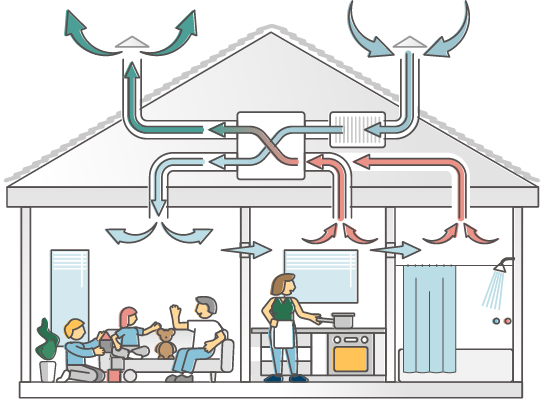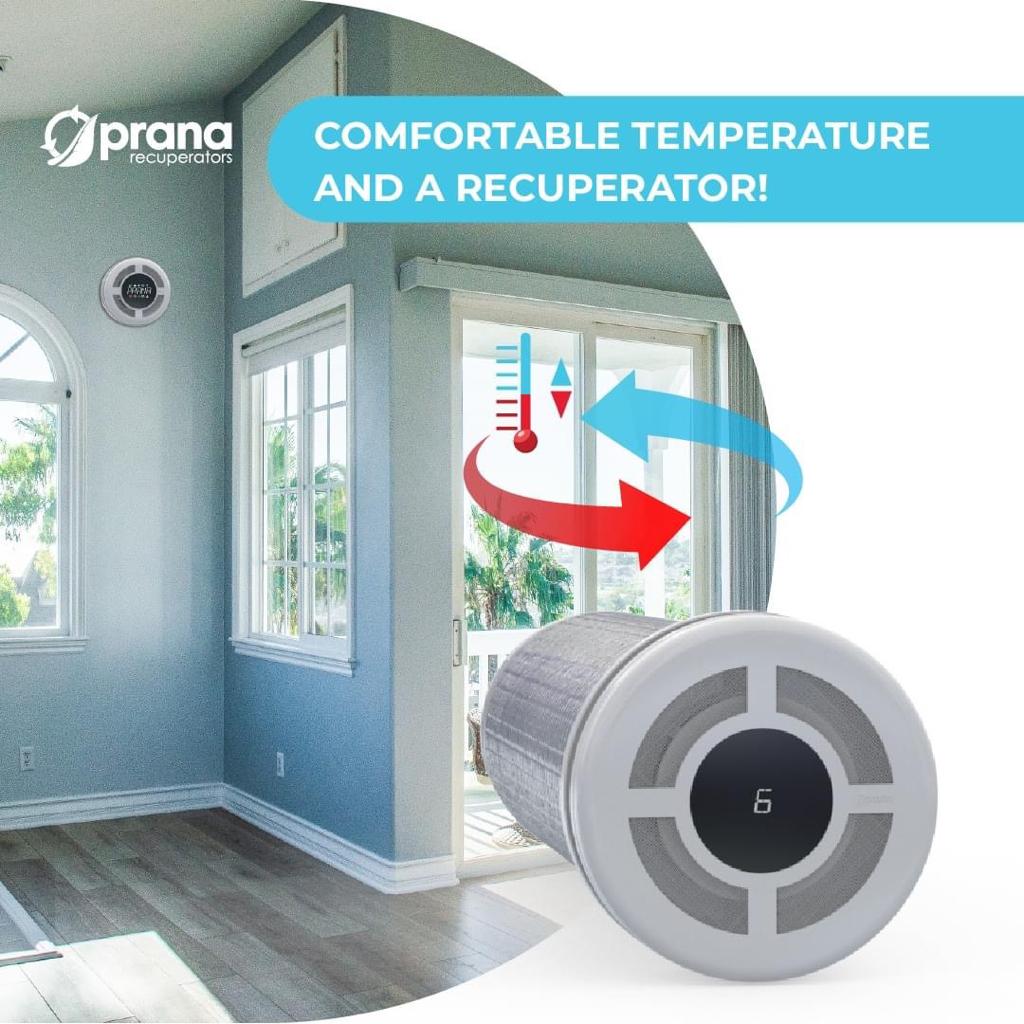Home Ventilation Melbourne Explained: Natural vs Mechanical Options
The Duty of Home Ventilation in Stopping Mold and Indoor Allergens
Home ventilation is an essential component in preserving a healthy and balanced interior environment. It controls moisture degrees, which can prevent the development of mold and mildew and the accumulation of allergens. Several home owners overlook the significance of proper ventilation, often causing unseen problems. Recognizing how ventilation systems feature and their impact on air high quality could be the key to a healthier home. What steps can be required to enhance these systems effectively?
Understanding Home Ventilation Systems
While numerous property owners might ignore the value of ventilation, understanding home ventilation systems is essential for maintaining interior air quality and preventing mold and mildew development - Home Ventilation Melbourne. These systems promote the exchange of stagnant indoor air with fresh exterior air, efficiently decreasing pollutants and moisture levels. Common types include natural ventilation, which counts on wind and temperature differences, and mechanical ventilation, which utilizes ducts and fans to control airflow. Additionally, well balanced air flow systems incorporate both approaches to maximize air high quality. Appropriately created and kept ventilation systems can assist control temperature and humidity, making certain a comfy living atmosphere. Homeowners need to think about factors like home occupancy, design, and environment when picking a ventilation system to finest suit their requirements and improve general air top quality
The Effect of Moisture on Mold And Mildew Growth
Humidity plays a crucial role in mold and mildew development, making it a crucial aspect for home owners to monitor. Mold flourishes in atmospheres where moisture degrees go beyond 60%, as these problems provide the moisture required for spores to sprout and multiply. High moisture can arise from numerous sources, including poor ventilation, water leaks, and cooking or bathing activities. When moisture degrees continue to be elevated, mold and mildew can create rapidly on organic materials such as wood, fabric, and drywall. Home owners ought to use dehumidifiers and assure appropriate ventilation in areas vulnerable to wetness, such as washrooms and cellars. Keeping indoor moisture in between 30% and 50% can greatly reduce the threat of mold and mildew growth, adding to a healthier living environment.
Identifying Usual Indoor Allergens
Interior atmospheres can harbor a selection of irritants that impact health and comfort. Typical indoor irritants consist of dust mites, pet dog dander, mold spores, and pollen. Dirt mites grow in bed linen, carpets, and furniture, preying on organic product and contributing to respiratory concerns. Animal dander, composed of little flakes from skin and fur, can trigger sensitive reactions in delicate individuals. Mold and mildew spores, commonly present in wet areas, can multiply and impact air quality. Furthermore, pollen can penetrate homes through open windows or on clothing. Recognizing these allergens is crucial for maintaining a healthy indoor environment. Recognition of their existence allows property owners to take positive actions to reduce exposure and enhance general indoor air quality.
Benefits of Correct Ventilation
Correct ventilation is crucial for preserving a healthy indoor atmosphere, as it aids to manage air high quality and decrease the accumulation of contaminants. Appropriate air movement promotes the exchange of outdoor and interior air, consequently diluting hazardous materials such as unstable natural substances, allergens, and dust. This process not just boosts comfort yet additionally contributes to the total health of owners by minimizing respiratory issues (Home Ventilation Melbourne). Furthermore, correct air flow effectively controls humidity levels, reducing the possibility of mold and mildew development and cultivating a drier setting for wellness. In addition, it can enhance energy efficiency by guaranteeing that heating and cooling systems run better, bring about lower power expenses. Generally, correct ventilation is an essential part in promoting a safe and healthy and balanced home

Tips for Improving Home Air Flow
Lots of property owners might ignore it, improving home air flow is necessary for boosting air high quality and protecting against mold and mildew development. One reliable strategy is to consistently open home windows to promote cross-ventilation, allowing fresh air to flow. Setting up exhaust followers in bathroom and kitchens can effectively get rid of moisture-laden air, minimizing moisture levels. Home owners ought to likewise consider utilizing air purifiers with HEPA filters to catch contaminants and irritants. Routinely keeping a/c systems, consisting of transforming filters, warranties peak airflow and effectiveness. Securing leaks around doors and windows can stop outdoors air from entering, which assists keep a regular interior environment. Lastly, integrating houseplants can normally boost air quality while adding aesthetic value to the home.
Often Asked Concerns
Just how Often Should I Clean My Home Ventilation System?
Identifying exactly how commonly to cleanse a home air flow system depends upon different aspects, consisting of use and environmental conditions. Home Ventilation Melbourne. Usually, professionals suggest a comprehensive cleansing every three to five years to keep ideal airflow and performance
Can Plant Kingdom Help In Reducing Indoor Allergens?
Study shows that specific interior plants might help reduce allergens by improving air quality and enhancing moisture. Nevertheless, their effectiveness differs, and maintaining a clean environment remains necessary for handling interior allergens properly.
What Types of Air Filters Are Best for Mold And Mildew Prevention?

Are There Specific Ventilation Needs for Cellars?

How Do I Know if My Air Flow Is Functioning Efficiently?
To identify reliable air flow, one must monitor moisture levels, examine airflow through vents, and observe signs of condensation or stationary air. Regular assessments can indicate whether the system properly circulates and exchanges interior air.
Comprehending how ventilation systems function and their effect on air quality might be the key to a much healthier living space. While many property owners might forget the relevance of ventilation, recognizing home ventilation systems is vital for keeping indoor air top quality and avoiding mold development. Common types consist of natural air flow, which counts on wind and temperature distinctions, and mechanical ventilation, which utilizes fans and ducts to regulate air flow. Proper air flow is necessary for preserving a healthy indoor atmosphere, as it helps to regulate air top quality and decrease the buildup of pollutants. Many house owners may neglect it, enhancing home air flow is essential for boosting air high quality Home Ventilation Melbourne and preventing mold development.